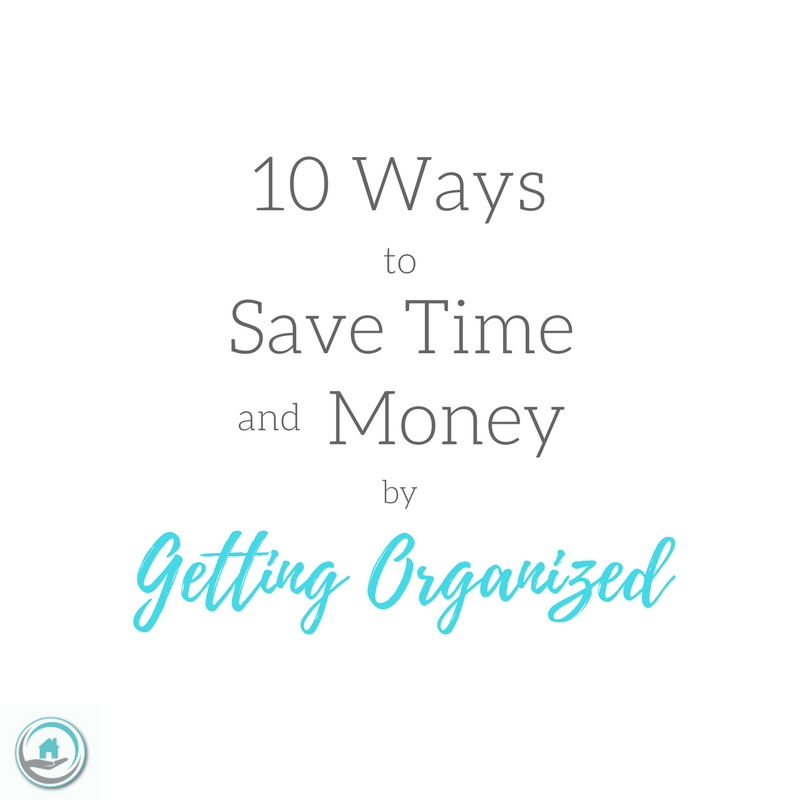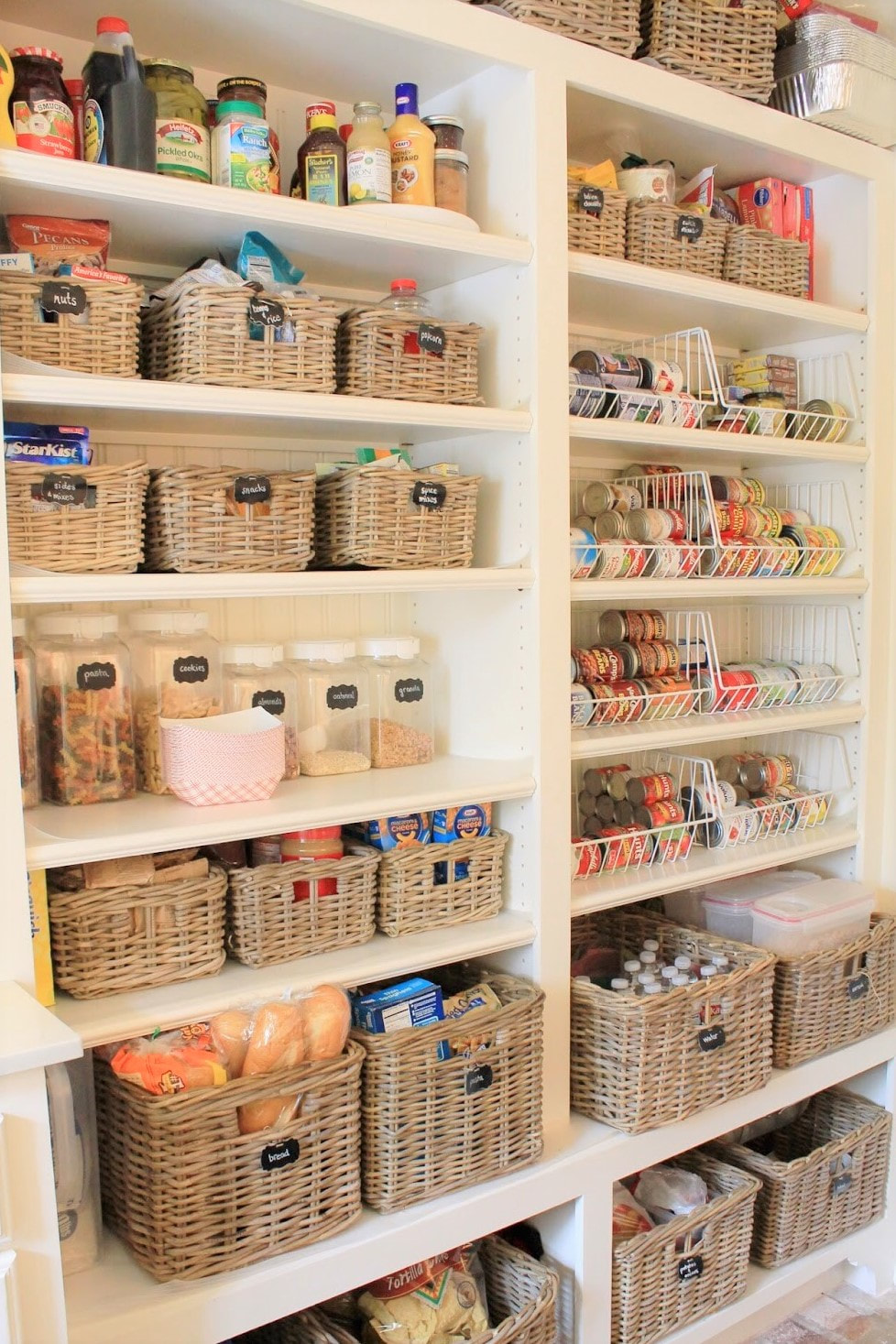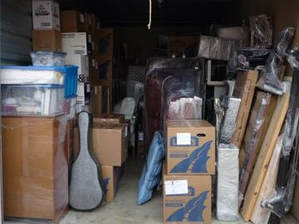What can you do to plug the holes that keep draining your wallet and create some extra cash? 1. Eliminate clutter and create some cash When you de-clutter drawers, cupboards and closets you will often find items that are still in great shape but no longer of use to you. You can generate some extra cash by putting your items on Craigslist or Kijiji. Other options include putting them on consignment, listing them on a "Swap and Shop" Facebook page or having a garage sale. Donate those hard to sell items to a good cause. You get rid of items that no longer serve you and someone else gets something they need. It's a win-win! 2. Avoid buying duplicate items Have you ever bought a replacement item for something you know you own but just can't find? Get organized and this won’t happen because you'll know exactly where to find what you're looking for. 3. Meal-planning keeps you from wasting food Meal planning means you'll waste less food and in turn, less money on groceries that you won't eat. When you know what food you have on hand, you can plan your meals around your ingredients. This will save you money at the grocery store because you will only buy ingredients that you will use. Meal planning will also cut down on trips to the grocery store, saving you valuable time and money! The main thing to do is get into the habit of planning out your meals in advance. Sit down on Sunday with your calendar and some cookbooks, and figure out what you would like for dinner each night of the coming week. Keep your weekly schedule in mind as some days you might have to whip up a meal in less than 30 minutes while other days you might have time to make something more elaborate. Have a look at what produce you might like to incorporate into your meal plan before they get past their prime. Then have a look in your pantry to find out what you already have on hand and make a list of what you need to buy before you head out to the grocery store. Post your dinner list where you will see it, so that you remember to defrost and marinate the necessary ingredients ahead of time. 4. An organized pantry will save you money
Family members who know they will be out all day can grab a snack to throw in a purse or book bag and avoid spending money on snacks from a vending machine or a cafeteria, where they will be much more expensive. 5. Save money by organizing your paperwork Even though online banking has spurred automatic bill payments, many people are still being penalized with late payment charges. The trick to organizing paperwork is having a simple system to deal with it as it enters your home. Setting up a system will require one grand purge ahead of time, but it will feel great to dig yourself out of that paperwork pile! Block out some time to sort through everything and set up your filing system to accommodate important documents and incoming mail. Paperwork chaos leads to late fees which can snowball and affect your credit rating. Take the time to review your bank statements and stop paying unnecessary bank fees. Don't be afraid to switch banks in order to get a better service plan. Also review statements for recurring payments such as cable, telephone, home and auto insurance... Call your cable company, cell service provider, or even your insurance agent, to ensure you are getting the best plan available or to negotiate a lower rate. Look at all your options and save where possible. 6. Create a "Capsule Wardrobe" If you’re like most people, you own a bunch of clothes and only wear about twenty percent of them. This is called the Pareto Principle. Also known as the 80/20 rule. In the case of you and your closet, you wear 20% of your clothes 80% of the time. When you have a capsule wardrobe, Pareto’s Principle doesn’t come into play. You wear everything. End of story. A capsule wardrobe is basically a set number of garments that you can mix and match with one another to create many different outfits. The foundation pieces are essential pieces that don't go out of style and that can be updated with seasonal pieces. Typically, you wear a capsule wardrobe for a season, then at the end of that season, you update it for the next season. Obviously many items would carry over to the next season and you could add just a few items to keep things fresh. Typically the seasons are split up like this: Winter (Jan-March), Spring (April-June), Summer (July-Sept), Fall (October-December). Here is an example using 33 items: 15 tops 6 bottoms 6 pairs of shoes 2 dresses 4 jackets/coats
By adopting the Capsule Wardrobe concept you will stop overspending on clothing year after year and stop wasting valuable time deciding what to wear every morning. You can also take your unwanted garments to the local consignment shop and turn your unwanted items into cash. 7. No more storage unit rental fees It’s a sad fact that the storage unit rental industry makes millions of dollars off people who just can’t let go of stuff. They have even made a reality show called "Storage Wars" which demonstrates society's obsession with holding on to "stuff". Sometimes the reasons are legit: you just inherited your Aunt Betsy's possessions and haven't had time to sort them yet, or you’re putting your house on the market and want to stage it properly. Other times, though, storage rental fees are little more than payments to procrastinate. 8. Save on home repair and maintenance issues Attics, basements and spare rooms are places where structural and moisture issues first appear. If these spaces are cluttered with stuff, you won’t be able to spot the first signs of a problem. That means as the problem grows, you’ll wind up paying more to fix it than if you had of noticed it when it started. Clearing out the junk in the attic allows you to spot any roof leaks and add more insulation that will help you lower your monthly utility bill. Getting rid of those unwanted items in the basement means you’ll see foundation cracks and leaks before they destroy everything else down there. And that spare room? Cleaning it out might mean that you find unused items that you could convert into cash or convert the space into a home office that you might be able to deduct on your taxes. 9. Organize your errand list to save time and gas By organizing and combining your shopping list and errands, you can save time and money on your fuel bill by avoiding multiple trips into town. 10. Spend less on stress relief Clutter and being disorganized is stressful. If you feel like your home is out of control you will likely feel as if your life is out of control as well. If you can't find a comfortable place to sit and relax or if everywhere you look screams MESS!, then you might head out in search of some relief. Some of you will go to the mall (which usually leads to more clutter) while others might head out to a restaurant or bar and spend more than you need to on dinner and a drink in order to relax. Transforming your space into a place where you can relax and recharge will increase your sense of control over your life and contribute to a positive outlook which in turn will save you money because you won't be going out as much to try to escape your life. Bottom Line
As you organize your household and finances, you will begin recapturing money you have been losing. When you can find everything you have, enjoy what you already own, you will plug those leaky holes that have been draining your wallet. When you get organized, you will be amazed how much money you will save.
0 Comments
Leave a Reply. |
|
Let's Connect ! |
Ready to clear the clutter?
Contact us today! |




 RSS Feed
RSS Feed